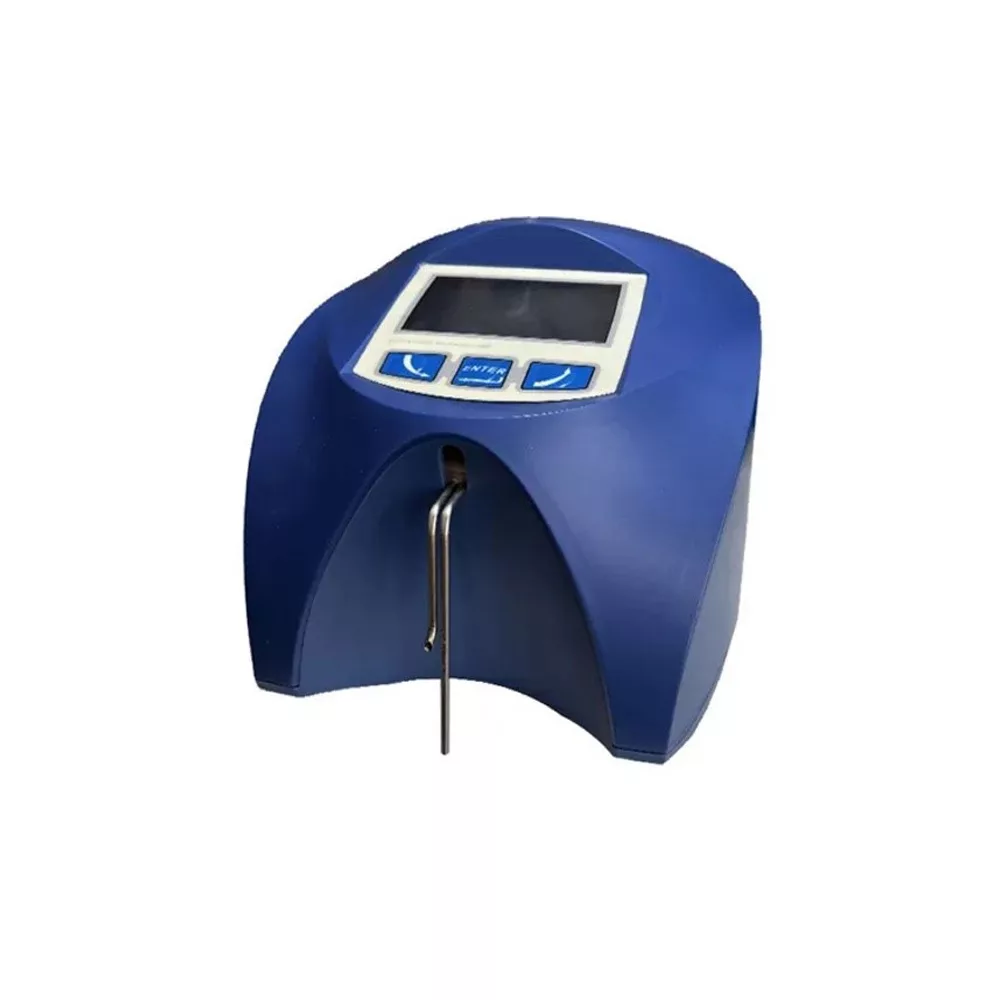Milk Test Analyzer KMT/A/10: Precision and Efficiency in Dairy Quality Control
Ensuring the quality and safety of milk is crucial in the dairy industry, from farm to production facilities. With milk being a staple food for millions, stringent quality control measures are necessary to meet regulatory standards and consumer expectations. A Milk Test Analyzer KMT/A/10 is an essential tool in this process, offering precise and efficient testing for various parameters in milk, including fat content, protein, lactose, and more. Designed to meet the needs of dairy farmers, producers, and laboratories, these analyzers provide reliable, real-time data that helps maintain the highest standards of dairy quality.
What is a Milk Test Analyzer?
A Milk Test Analyzer is a sophisticated device used to analyze the composition and quality of milk. These analyzers can measure a range of important parameters such as fat content, protein levels, lactose, solids-not-fat (SNF), and added water. Some advanced models also detect somatic cell count (SCC) and urea, which are indicators of milk quality and udder health in dairy cattle.
These analyzers are indispensable in various settings, including dairy farms, milk collection centers, processing plants, and quality control laboratories. They help ensure that the milk meets quality standards and is safe for consumption, providing a critical link in the dairy production chain.
Key Features of a Milk Test Analyzer KMT/A/10
- Multi-Parameter Analysis: Milk Test Analyzers can measure several key parameters simultaneously, including fat, protein, lactose, SNF, and added water. This comprehensive analysis helps in determining the overall quality of the milk.
- High Accuracy and Precision: These analyzers use advanced technologies such as infrared spectroscopy or ultrasonic waves to provide highly accurate and precise results. This accuracy is essential for making informed decisions about milk quality.
- Rapid Testing: Milk Test Analyzers deliver results in a matter of minutes, allowing for quick assessments and enabling immediate corrective actions if necessary. This speed is vital in both on-farm testing and large-scale milk processing operations.
- User-Friendly Interface: Designed for ease of use, these devices typically feature intuitive touchscreens and simple menus, making them accessible even to users with minimal technical experience.
- Automatic Calibration: Many Milk Test Analyzers come with automatic calibration features, ensuring consistent accuracy without the need for manual adjustments.
- Portability and Durability: Some models are designed for portability, allowing them to be easily transported to different locations, such as various farms or collection centers. These portable analyzers are often housed in rugged, durable casings to withstand field conditions.
- Data Storage and Connectivity: Advanced models offer data logging capabilities, enabling users to store and retrieve test results for future analysis. Many analyzers also feature connectivity options such as USB ports or wireless interfaces for easy data transfer to computers or cloud-based systems.
Benefits of Using a Milk Test Analyzer
- Quality Assurance: By providing accurate and reliable data on key milk components, Milk Test Analyzers help ensure that the milk meets regulatory standards and is safe for consumption. This is crucial for maintaining consumer trust and complying with industry regulations.
- Enhanced Efficiency: Rapid testing capabilities allow dairy producers and processors to quickly assess milk quality and make timely decisions, reducing downtime and increasing overall efficiency in the production process.
- Cost-Effective Monitoring: Regular use of a Milk Test Analyzer can help detect quality issues early, preventing costly losses due to contaminated or substandard milk. This proactive approach can save significant costs in the long run.
- Improved Herd Health Management: By monitoring parameters such as somatic cell count (SCC) and urea, Milk Test Analyzers help dairy farmers keep track of udder health and overall herd condition. This data is invaluable for improving herd management and preventing disease.
- Versatility Across Applications: Whether used on the farm, at a milk collection center, or in a processing plant, Milk Test Analyzers are versatile tools that cater to various needs within the dairy industry.
- Regulatory Compliance: Dairy producers are subject to stringent regulations regarding milk quality. Using a Milk Test Analyzer helps ensure compliance with these standards, avoiding potential legal issues and maintaining market access.
- Data-Driven Decision Making: The detailed and accurate data provided by Milk Test Analyzers enable producers to make informed decisions about feed quality, milking procedures, and overall herd management, leading to better productivity and profitability.
Applications of Milk Test Analyzers
- Dairy Farms: On dairy farms, Milk Test Analyzers are used to monitor the quality of milk produced by the herd. Regular testing can help farmers identify issues such as mastitis or poor nutrition, enabling timely interventions to maintain milk quality.
- Milk Collection Centers: At milk collection centers, these analyzers ensure that the milk collected from various farms meets quality standards before it is transported to processing facilities. This initial screening helps prevent the contamination of large batches of milk.
- Milk Processing Plants: In processing plants, Milk Test Analyzers are used to verify the quality of incoming milk and to monitor the consistency of processed dairy products. This ensures that the final products meet consumer expectations and regulatory requirements.
- Quality Control Laboratories: Laboratories use Milk Test Analyzers for detailed analysis of milk samples, often as part of research or quality control processes. These tests help in developing new dairy products and improving existing ones.
- Dairy Cooperatives: Dairy cooperatives use Milk Test Analyzers to ensure that the milk supplied by member farmers meets the required quality standards. This helps in maintaining the reputation of the cooperative and securing better prices for the farmers.
Choosing the Right Milk Test Analyzer
When selecting a Milk Test Analyzer, it’s important to consider the specific needs of your operation, including the parameters you need to measure, the required accuracy, and the volume of testing. Additionally, consider the device’s portability, ease of use, and data management capabilities, especially if you need to analyze data from multiple locations or integrate with other systems.
Look for analyzers that offer reliable performance, have a solid reputation in the industry, and come with strong technical support. A durable design with minimal maintenance requirements is also beneficial, especially for high-volume or field applications.
Conclusion
A Milk Test Analyzer is a crucial investment for anyone involved in dairy production, processing, or quality control. These devices provide the accuracy, efficiency, and reliability needed to ensure that milk meets the highest standards of quality and safety. By choosing the right Milk Test Analyzer, you can enhance your operation’s efficiency, maintain regulatory compliance, and ultimately, deliver superior dairy products to your customers.
Explore our range of Milk Test Analyzers to find the perfect solution for your dairy quality control needs and ensure that you are always delivering the best to the market.





Reviews
There are no reviews yet.